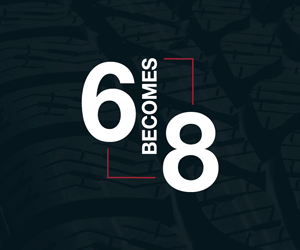
Add Native Plants to Your Garden
Published 10:40am 21 October 2019

 Words by Kylie Knight
Words by Kylie Knight
Every garden in Australia, if we incorporate native plant species, can be a barrier to extinction of native animals and insects.
That is the view of Warwick Hill, manager of the CREEC Community Nursery, and he would like nothing more than to see grevilleas, acacias, leptospermums and hakeas flourishing across the region.
“If we can get everyone to create tiny microclimates in their backyard and there’s another one next door, and another next to that … it’s a simple as that,” Warwick says.
“Without this, our unique creatures won’t exist in 50 years time.”
Growing native plants in your garden is also the perfect way to teach your kids about the creatures that call Australia home, big and small.
Planting the right mix of species will attract native birds, butterflies, possums, lizards and even koalas.
Warwick says that koalas need habitat trees corridors, so when travelling from one place to another, they are safe.

Color is essential in attracting females of any species , especially birds and butterflies, which in turn will attract males. Red is a magnet for brightly-coloured critters.
Native plants growing fruit or berries will attract eaters of smaller fruit such as lizards, water dragons, and skinks.
And did you know that leptospermums have small white flowers that produce nectar that acts as a native insect and bee antibiotic? Well, you do now.
If you want to create a haven for lorikeets, a red bottle brush with melaleuca in the weeping form is a winner.
The native peanut tree is popular with possums, kookaburras, magpies and crows, while the lemon-scented myrtle will attract bees, moths and nectar eaters, which love the creamy, yellow pompom flowers.
In addition to providing a home for native aquatic plants and fish, creating a natural water feature at home will also act as a drinking hole for butterflies, birds and small animals.
Warwick recommends that you ensure that it is only 15-20 cm deep, lined with black plastic and filled with mosquito-eating fish and native duck weed. The duck weed will keep the water clean for the fish.
You need to make sure small animals and insects can get in and out easily — the shallow depth and use of water plants will help in this regard. And keeping it small and shallow does not mean you need to fence it.

TIPS FOR ATTRACTING WILDLIFE
● Only plant native species in your garden
● Establish a cross-section of native plants
● Design your garden, rather than adopting a haphazard approach. Decide what you want to attract and find out what will grow in your area
● There is no such thing as a low-maintenance garden. You have to be prepared to do the work
● Ask for advice on plant selection, position, soil preparation and maintenance
● Talk to a community nursery about which plants belong in your area. There are some areas where particular species won’t thrive
● Ensure you use the correct fertiliser
Related Stories
Top Stories

Young BMX champion takes on Australia
A young BMX rider has taken Australia by storm winning the 2024 Freestyle BMX National Championships. Here's the story

Gymnast reaches new heights

Popular Stories

Dolphins battered in Battle for Brisbane
An already depleted Dolphins side is likely to be without Hamiso Tabuai-Fidow for a few weeks after he suffered a hamstring injury in tonight’s Battle for Brisbane. Head Coach Wayne Bennett says to ‘trust me, we’ll deal with it’ as the squad prepares for a trip to Darwin next week

Supernode to be built in Brendale
Work will start soon in Brendale on one of Queensland’s biggest Battery Energy Storage Systems (BESS). ** FREE TO READ **

Fishing tips: What's biting in April 2024
April heralds the start of the change of seasons and it is a great time for mixed bags in the local area. Water temperature will start to drop, day length is becoming shorter, and the wind generally shifts more to the southwest in the mornings. Here's some fishing tips from our expert












